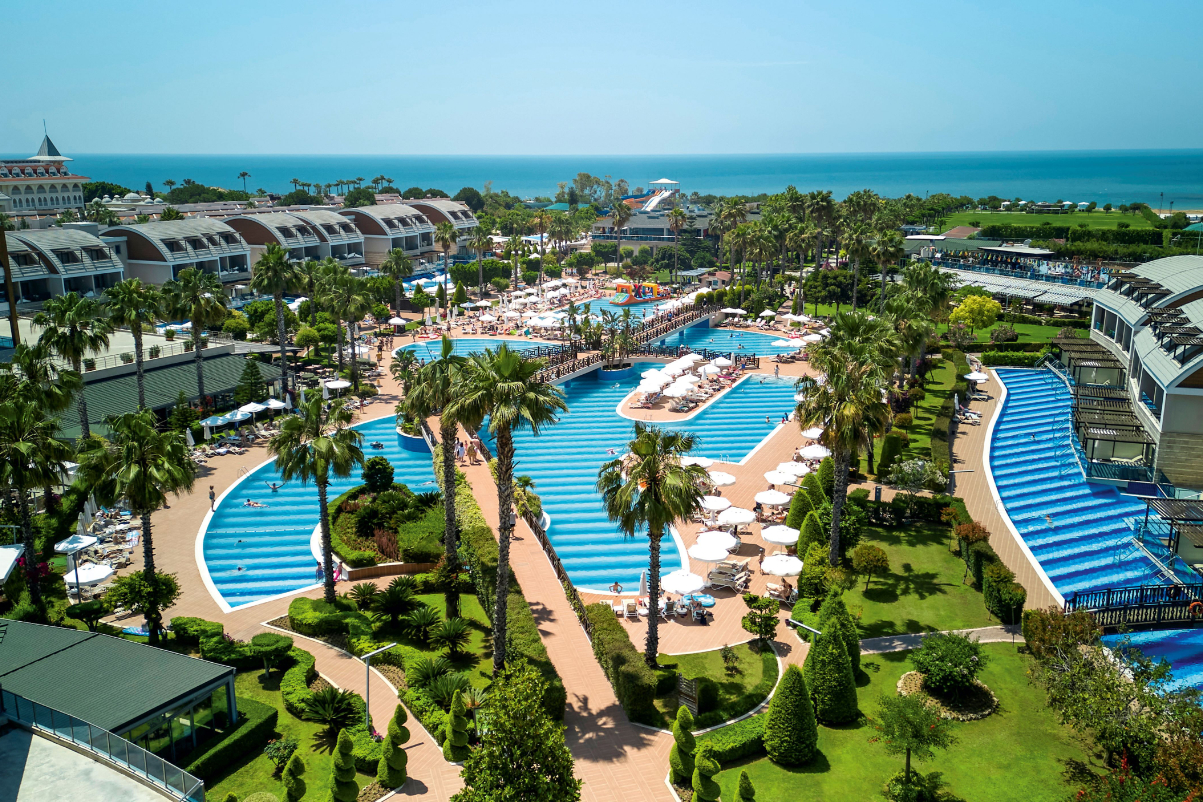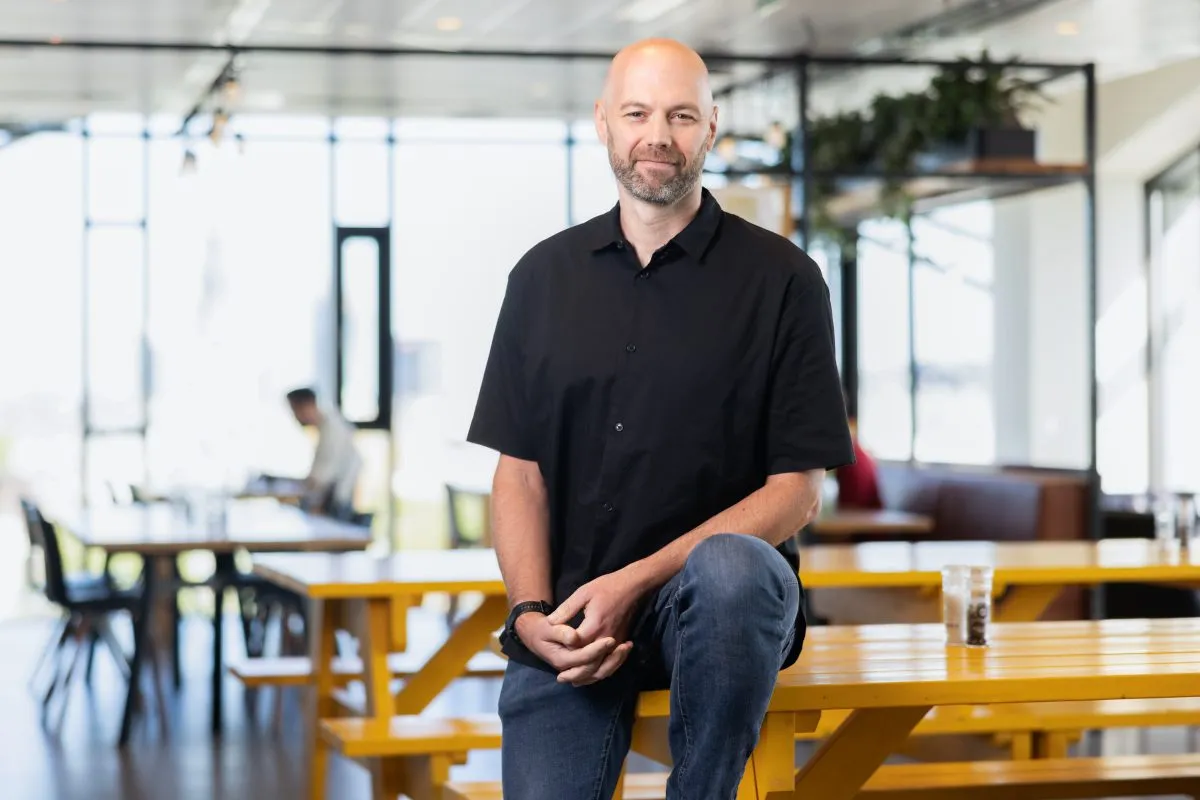Hilton CEO Believes Direct Booking Campaign Is Key to Improved Guest Experience
Skift Take
Hilton's investments in pushing direct bookings and loyalty memberships is working out, according to Hilton CEO Chris Nassetta.
"This is something we will be talking about forever and it's a very comprehensive approach to having deeper and more frequent engagement with customers," Nassetta told investors and analysts during Hilton's fourth quarter and fully year 2017 earnings call Wednesday.
Hilton, like many of its peers, began heavily promoting direct bookings through campaigns such as "Stop Clicking Around" — its biggest ad campaign to date — in 2016 and has since steadily invested in encouraging consumers to book direct by incentivizing them to do so with discounted loyalty member rates.
Nassetta said that in 2017 alone, Hilton added a record 11 million more Hilton Honors loyalty members for a total of 71 million, and that close to 95 percent of those members are booking direct. Direct bookings, he noted, account for approximately a third of all of Hilton's bookings, with "10 percent and growing" coming from mobile.
Hilton's success with pushing loyalty and direct bookings isn't limited to Hilton alone. A recent Kalibri Labs report demonstrated that hotel owners were big winners, and direct booking campaigns may have although the company is not conceding that. contributed to Expedia's rocky fourth quarter earnings although the company is not conceding that.
The Importance of Loyalty
For Nassetta, however, these efforts are not just about getting people to stop clicking around; direct bookings and loyalty are inextricably intertwined with another, and they have a direct impact on Hilton's ability to offer a superior guest experience.
"We've been working very hard on strategies to have more direct relationships with customers, which I know sometimes can get interpreted as a marketing campaign like Stop Clicking Around or whatever, but it's a much more complex and holistic approach to make sure what we're doing with product, what we're doing with service, what we're doing with technology, what we're doing with very specific parts of the Honors program … [is] working and getting more people in the program and a higher percentage of them engaged and higher percentage of them booking direct with us," he said.
Loyalty, as Skift has reported previously, also plays a big role in Hilton's "Connected Room," or smart hotel room concept.
In his prepared remarks, Nassetta also said that changes are coming to the Hilton Honors program to offer "new perks, especially for members of its highest tiers." The new features include the ability for members to "gift elite status to another member, receiving bonus points for nights beyond a certain milestone, and rolling over nights to jumpstart earnings status for the next year."
These new features, he later noted, however, are not part of a loyalty "space race" and they also "don't cost much of anything." "It's not like the owners are bearing the burden of incremental costs," Nassetta noted.
On International Inbound Travel
In addition to discussing the importance of loyalty to Hilton's overall strategy, Nassetta was also asked about Hilton's international inbound travel in 2017. He said that, similar to what U.S. Commerce department data showed, Hilton and the U.S. lodging industry overall saw a 4 percent drop in international inbound revenue in 2017. Commerce department data said that international visitors spent 3.3 percent less in the U.S. in 2017 than they did in 2016, which amounted to a $4.6 billion loss for U.S. businesses.
He did note, however, that international inbound travel only accounts for approximately 5 percent of the company's system-wide business.
For 2018, he said he believes this year will be better than last year, and that it will depend on the relative strength of the U.S. dollar, as well as "the work we're doing as an industry to soften the edges of some of what's being said." While noting the importance of security as a top priority, he added, "We want to soften the rhetoric … we've been having lots of conversations and I like to think we are making some progress there. I think the dollar will help us."
On Tax Reform, Corporate Travel, Meetings, and Cancellation Policies
Another thing that is helping not only Hilton but the U.S. business industry at large, Nassetta said, was U.S. tax reform and an improved regulatory environment, even though it's still relatively "reasonably early" to judge its true impact. These moves, he said, may eventually translate to higher corporate transient business, which he described as being "choppy" in 2017.
"Overall, we think [the changes in tax policy] will be good for the broader economy, lodging industry, and Hilton," he said.
Hilton's fourth quarter earnings included a $665 million provisional tax benefit thanks to recent tax reform measures, and Nassetta said that "the bulk of tax benefit reforms will be returned to shareholders."
When asked to discuss the outlook for corporate group business in 2018, Nassetta said "it should be better than what was a relatively weak year in group last year." Interestingly, however, Nassetta was not asked by analysts whether Hilton would follow Marriott's lead in cutting third-party commissions for group bookings.
Last year, however, Hilton did follow Marriott's lead in implementing a new cancellation policy in the U.S. and Canada by requiring anywhere from 48 to 72 hours' notice to cancel a hotel reservation without penalty. When asked if Hilton received any "pushback" from corporate travel managers for instituting the new policy, Nassetta said "We did have a little kickback, but nothing material."
On HNA and Anbang
Recent headlines surrounding Hilton shareholder HNA Group, which also owns Carlson Hotels and is the majority stakeholder of Rezidor Group, have highlighted the company's financial problems, including its need to sell off billions in assets to pay off its massive debt.
But when asked to comment on HNA, Hilton chief financial officer Kevin Jacobs said, "We don't comment on the any of the dealings of our individual shareholders."
Another Chinese conglomerate, Anbang, has also made headlines recently, noting that the company is considering selling off its real estate assets, including the iconic Waldorf-Astoria building in New York City, which it purchased from Blackstone in 2015 for nearly $2 billion.
Hilton CEO Nassetta, however, squashed any rumors that Anbang would be selling the Waldorf-Astoria. He also said that demolition and renovation plans at the hotel are "on schedule" and that Anbang has said "they intend to move forward" with their plans for the building. He added that if the property were to be sold again, however, that Hilton has a "very well protected position there" and "very strong agreements that will run with the property."
On Scale
When asked by an analyst whether Hilton would choose to grow by acquiring another platform, Nasetta said he's more focused on the company's "organic growth strategy," which is to "deliver better products that resonate more for customers and deliver better returns for you guys." He added, "If we didn't have scale or if we had big strategic gaps, I'd understand the argument [for mergers and acquisitions.]"
Nassetta didn't completely rule out the possibility of engaging in merger and acquisition activity, however.
"Having said that, we will say never say never," Nassetta said. "If something ever presents itself that meets the test, then we'd consider."
As for the company's organic growth, that strategy also includes the addition of more brands, which he mentioned at the Skift Global Forum in 2017. They include four new brands: a Hilton Plus (a slightly more upscale version of the Hilton brand as it is now); an urban micro hotel brand (which he described as a “hostel on steroids” at the Skift Global Forum); a luxury soft brand collection, and a luxury lifestyle brand.
On the Numbers
Hilton had a solid fourth quarter and full year in 2017. Net income in the fourth quarter was $840 million and for the year it totaled $1.264 billion. Fourth-quarter revenue increased 24 percent to $2.28 billion.
System-wide comparable RevPAR, or revenue per available room, grew 3.8 percent in the fourth quarter and 2.5 percent for the full year, compared to 2016.
Nassetta also said that Hilton "opened more than a hotel a day in 2017" and that it set records for the "most rooms under construction in the industry," accounting for 21 percent of all hotel rooms in the world currently under construction. Much of that growth in new hotel product, he said, would be in the Asia-Pacific region, followed by Europe, Africa, and the Middle East.
Looking ahead, the company also issued a guidance, estimating full year net income to range from $802 million to $837 million.




